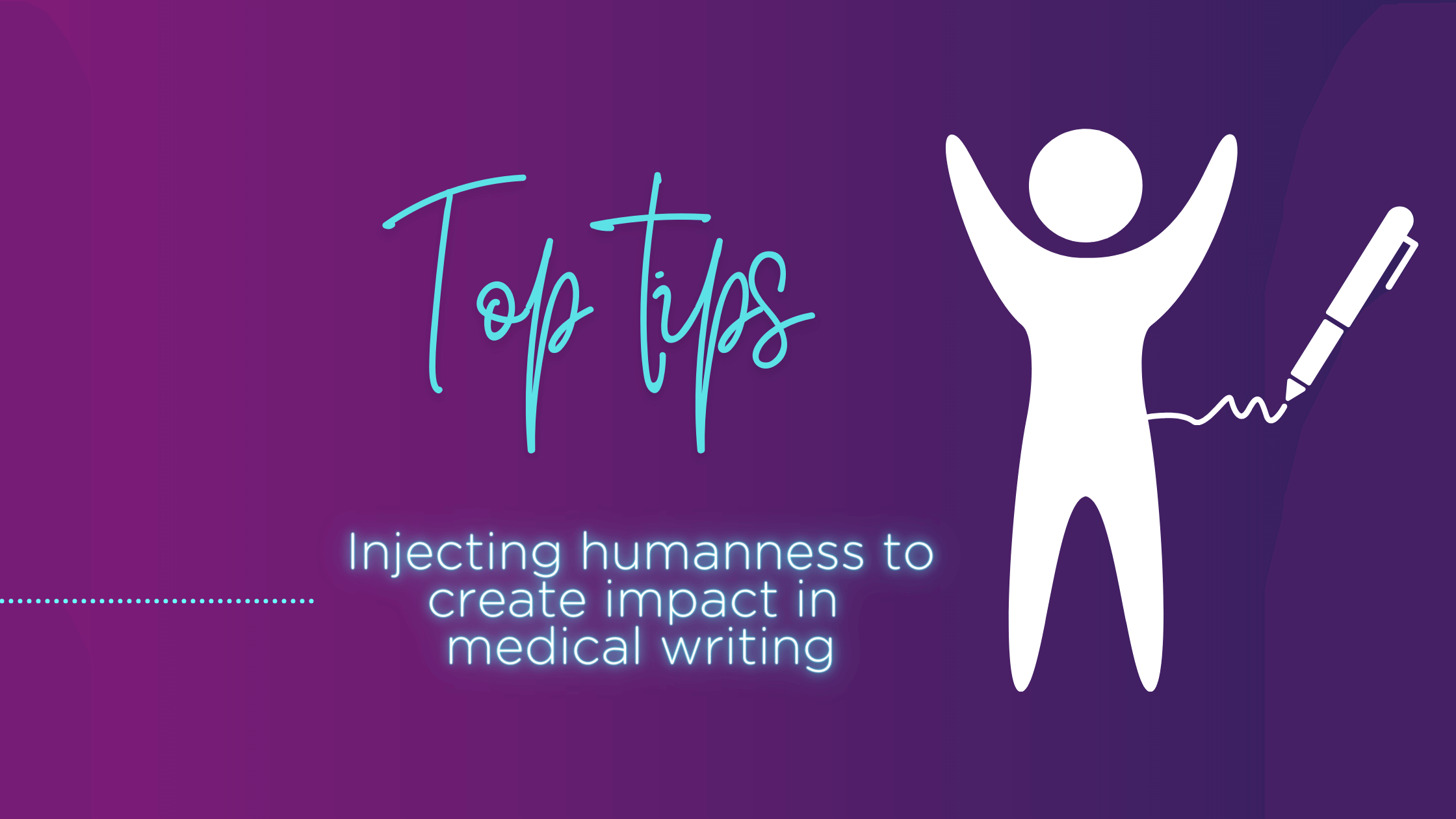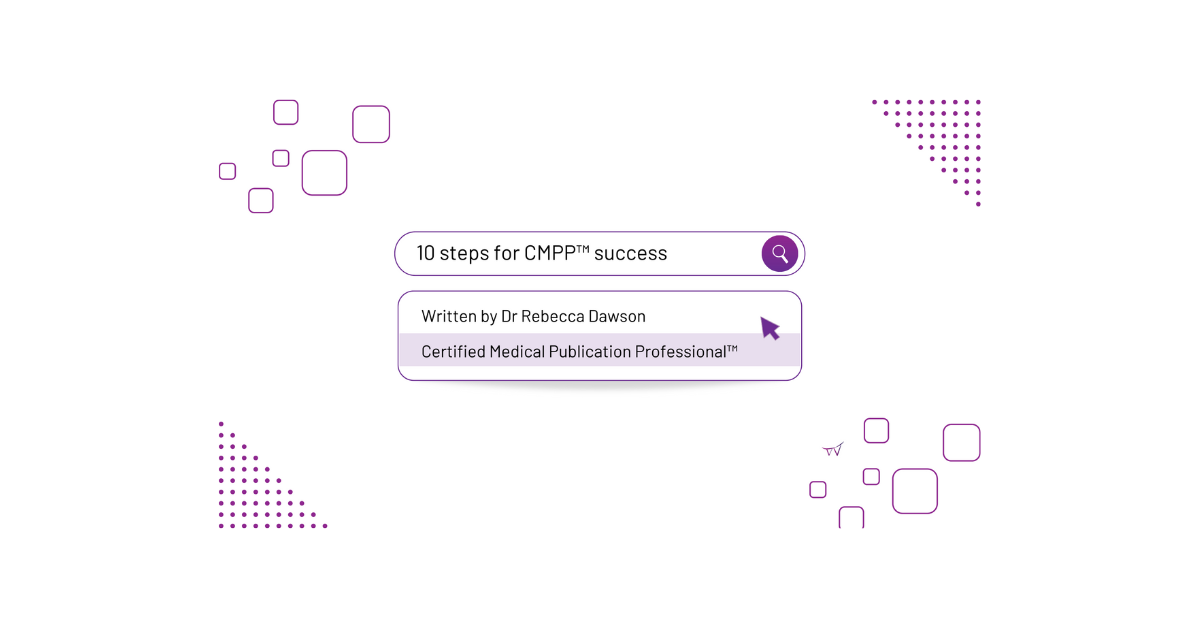I did all the research. Passed all the writing tests. Smashed all the interviews.
But nothing could prepare me for my first day as a junior medical writer. Suddenly, I was thrown into a pretty niche (and secretive) industry with lots of strange rules and even stranger lexicon (symposia? Who is she?). As my agency’s first associate medical writer, no one knew quite what to do with me. I cut my teeth on tedious projects like KOL mapping (and yes, I had to google what a KOL was), wondering if I’d ever get to actually write something.
Luckily the industry has moved on since then, with more and more Med Comms agencies investing in structured training and mentorship for budding medical writers. Still, the fast-paced nature of agency life can leave even the most supported juniors wondering exactly what they’ve gotten themselves into.
So, how do you handle the unique challenges of your first Med Comms position? Whether you’re currently job hunting or already knee-deep in your role, here are my top tips to set yourself up for success as a junior medical writer.
1. Ask questions (but be ready with answers)
First and foremost, let’s put your mind at ease – from Day 1, you won’t be navigating the world of medical writing alone. You’ll likely be working on a team with writers of all levels of experience, so you’ll find support and guidance at every turn. As a junior medical writer, stepping into this realm can be an overwhelming experience, but rest assured, your colleagues further along the career pathway are here to share their wealth of knowledge.

‘Don’t be afraid to ask questions’ is age-old advice, and with good reason! It’s way better to admit when you don’t know something, rather than try to wing it and risk a mistake that will cost your team time and money. Hit a stumbling block? Ask for help! Chances are, you’re surrounded by experienced team members who’ve handled this situation before and can advise you on what to do.
But as you start to learn the ropes, be careful not to over-rely on the expertise of others. Instead, take a few minutes to brainstorm some possible solutions yourself before asking for help. Not only is this a great low-stakes way to build your problem-solving skills, you’ll also put yourself firmly in your manager’s good books by doing some of the thinking for them!
2. Be a jack of the Med Comms trade

You may have heard the phrase ‘jack of all trades, master of none’, usually within the context of cowboy builders or the ‘trained’ gardener who butchered your aunt Jackie’s box hedging. But did you know this is only part of the phrase? The full saying actually goes ‘Jack of all trades, master of none. But oftentimes better than master of one’.1
“Okay, but what’s that got to do with Med Comms?” I hear you ask. Well, in your first job, you will be assigned an account, creating materials for a particular client or therapy area. Though challenging at first, after a few months you’ll find that you’re suddenly the agency’s oncology oracle, or gastro guru. While an in-depth knowledge of a disease area may seem like a good thing, over time you might find that the work starts to become stale and repetitive. If this happens, it’s essential for your development (and let’s face it, your sanity) to ask your manager about new challenges.
Though switching accounts is never easy, the more chances you get to meet new clients and immerse yourself in different kinds of projects, the faster you’ll grow as a writer. Think of future you as the Swiss army knife of medical writing, prepped to survive any challenge life (or your client) throws at you. After all, nobody wants to be Diabetes Dan.
3. Help an account manager out!
When starting out as a medical writer, your client interactions may be pretty minimal. Taking briefs, writing budgets and keeping clients happy is the account handler’s job, right?
Well, actually, the boundary between accounts and editorial is virtually non-existent (it’s more of a dotted line at best). As you progress in your career, you’ll find that you’re an integral cog in the client management machine. You’ll be discussing briefs, helping with budgeting and chatting with clients on the regular. So, the sooner you become comfortable with the idea of client liaison, the better.
Even if you’re not currently meeting clients face-to-face, there are things you can do right now to set you on the path to expert client management (and a harmonious relationship with your account manager):
- Ask your account handlers for all the intel on the client, from their motivations to communication preferences. This way when you do finally interact with the client, they won’t feel like such a stranger!
- Have a question about a project? Write down the query in a client-friendly way so your account handler can easily read it aloud on a call (or paste it into an email). Not only will this earn you serious kudos amongst your teammates, it’ll also ensure that nothing gets lost in translation
- Coming to the end of a project? Let your account handler know as soon as possible so they can line up the next piece of work for you.
Us medical writers don’t exist in a vacuum. We’re part of a team of talented individuals all working towards a common goal. And the more you help your team out, the more you’ll find that your team will support you in turn.
4. Forgive your medical writing mistakes
Making mistakes is an inevitable part of working life; especially when you’re learning something new. From sloppy misspellings to ballooning budgets, all sorts of challenges will be thrown at you during your Med Comms career.
When you’re a newbie, it’s easy to beat yourself up when something doesn’t go as planned. You may even find yourself feeling defensive, especially if you tried your best but still failed. But playing the blame game is not helpful for anyone involved. When something goes ‘wrong’, a lot of the time it’s usually down to a miscommunication (ironic as we’re all in the Med Comms industry!), whether that’s a mismatch in expectations or misinterpretation of a brief.
So how can you move through this as a junior medical writer? Being honest, transparent and willing to listen will stand you in good stead. A simple way of doing this is to reframe what’s happened. Instead of asking “who was at fault?” or “who is right/wrong here?”, questions like “what was missing?” or “What’s needed to resolve this?” can put a much more gentle and compassionate spin on the issue at hand, helping you to come out of the situation a better writer and communicator.
5. Acknowledge your value as a medical writer
It’s hard to be the new person in a team where everyone else seems to know what they’re doing. Yet you’re not alone in feeling this way; even those of us who have been in the industry for years (10 in my case!) often feel like we’re winging it. But remember: whether you’re fresh from your undergrad or have transitioned from an entirely different sector, you got this job for a reason. And we need the unique skills and fresh perspective that only you can bring.
Conclusion
So, as you get settled into your medical writing role, bear in mind these 5 tips, and don’t forget to give yourself a huge pat on the back. Take stock of your victories (big or small) and reflect on how far you’ve come. We all started somewhere, and you’re exactly where you need to be right now.
References
- Forbes. Why being a jack of all trades is essential for success. Available from: https://www.forbes.com/sites/jodiecook/2021/05/13/why-being-a-jack-of-all-trades-is-essential-for-success/ (last accessed: March 2022).



